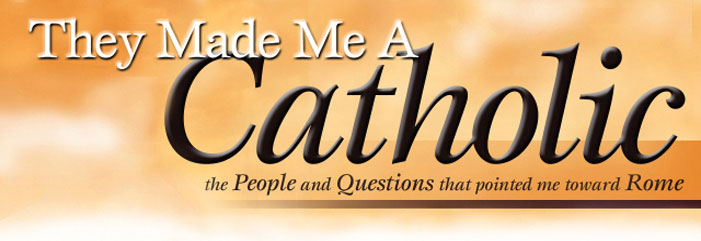|
He proceeded to explain. "It's like this.
You, Lint Hatcher, can be different things to different people.
To one person, you're a brother. To another, a husband. And to
another person, you could be a father."
"It's just like that with the Trinity!"
he continued. "In one way, God relates to us as a Father.
In another, he is the Son of God or the Christ. And, in another
way, he relates to us as Spirit!"
"Hmmm," I said. "Hmmmm."
Finally, I answered cautiously, "Isn't that some kind of
early heresy?"
It was. I didn't know the name at the time,
but the heresy was known as "modalism". It sought to
explain away the difficult concept of "three distinct Persons,
one God" by turning those three Persons into "modes"
of divine operation -- one God wearing three different hats.
Showing up some three hundred years into the life of the Church,
it was roundly condemned as a kind of Holy Trinity "Lite".
Gus eventually put his theory on the shelf,
if I recall correctly. But I put the question to you, dear reader:
Should he have paid any attention to some past (and thoroughly
Catholic) council's ruling on modalism? Or should he have shrugged
and pressed on with his exciting new theory?
Before you reject those ancient voices out
of hand, consider this: the word "Trinity" does not
appear in the Bible. Nor does the Bible contain a formal definition
of this doctrine. The triune God is a mystery alluded to by various
truths, a "revealed riddle".
|
And yet the Trinity is one of the central
doctrines of the faith. In fact, as I listened to Gus's theory
in the car that day, I recalled that if some group is considered
a "cult" it is largely because they flat-out deny the
Trinity or water it down to make it less bizarre.
That conversation never left me. Years later,
I realized why: our little dialogue pointed out an exception
to "private interpretation" -- when there wasn't supposed
to be any exceptions. All of Protestantism affirms that the Trinity
is central to Christianity. Yet, this doctrinal perspective did
not come to us via each person's "private interpretation".
Instead, it came to us from tradition. First, we accepted the
doctrine as having the weight of authority. Then we looked into
the Scripture and said, "Yeah, I can see how that passage
supports this whole Trinity idea."
This was not the usual thing. When it came
to passages on Baptism, the Lord's Supper, etc., we insisted
no church authority had any business influencing our own private,
prayerful interpretation of Scripture. The result? There was
widespread disagreement regarding Baptism, Communion, even Salvation
-- but we all agreed on the Trinity.
What did this mean? It had been proposed to
me that church authority was the enemy of truth that bishops
and such, given the final say, had plunged Christianity into
error. And yet, was the highly individualistic approach we Bible-only
Christians espoused any more trustworthy? Would there come a
day when Bible-only Christians scoffed at "trinitarianism"
and cheerfully spread "authentic biblical modalism"?
|

